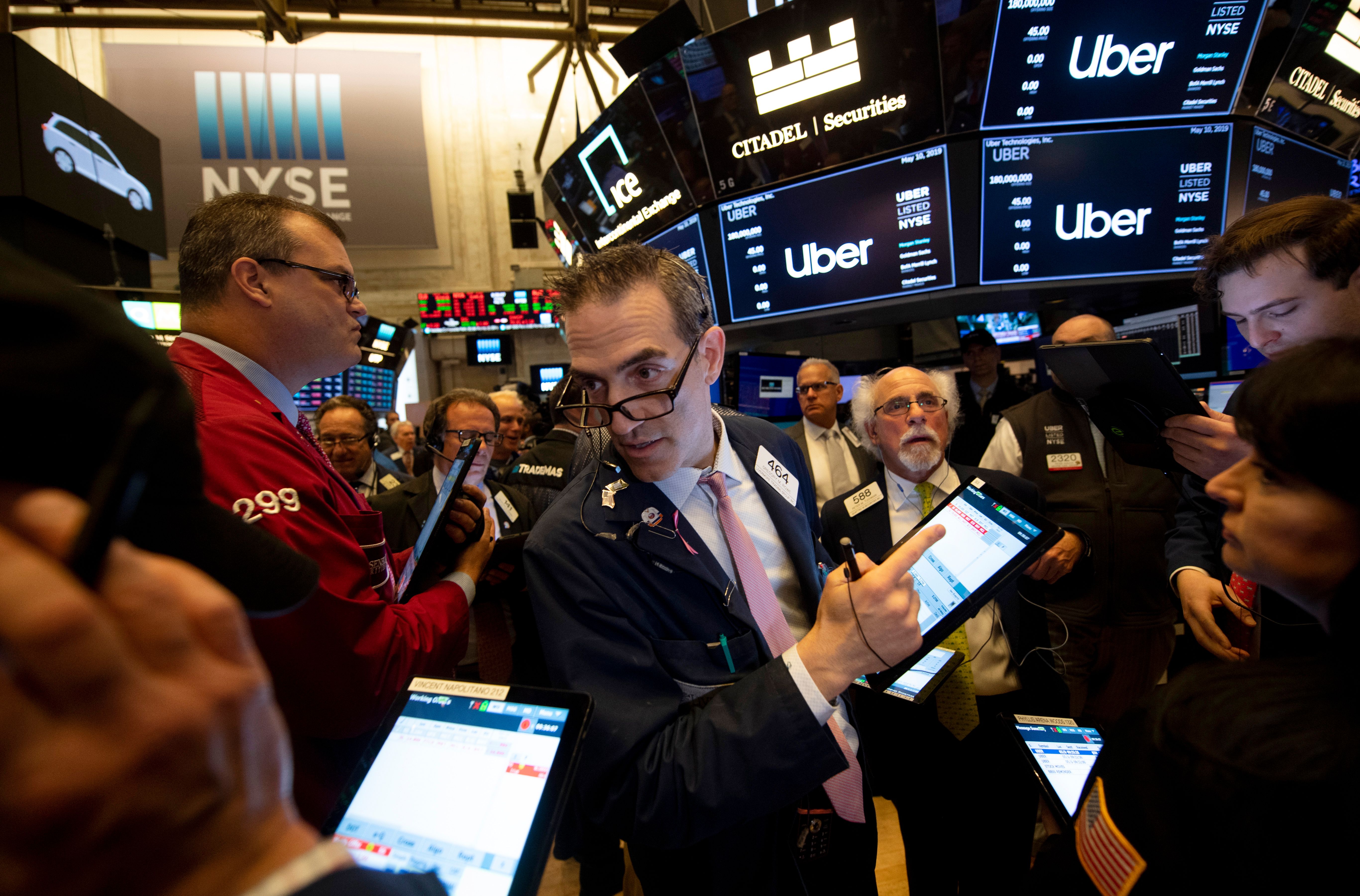The Uber problem
A giant loss raises questions about the entire ride-sharing model

A free daily email with the biggest news stories of the day – and the best features from TheWeek.com
You are now subscribed
Your newsletter sign-up was successful
The smartest insight and analysis, from all perspectives, rounded up from around the web:
Three months after its public debut, Uber posted a $5.2 billion loss that's "impressively vast" even for a company whose business model is based on outspending the competition, said The Economist. Much of this quarter's loss — $3.9 billion — is a one-time cost from stock-based compensation linked to Uber's IPO. Still, "from its inception Uber has now lost a cumulative $14 billion." All that money is being spent on "efforts at becoming the 'Amazon of transportation,'" but this is far more money than Amazon ever lost. Meanwhile, Uber's revenue growth has slowed to its lowest rate ever "as competition for passengers holds down fares." This is a company that "relies on rapid growth to keep investors happy." Now those investors have to decide "whether it's worth backing a firm splurging vast sums." Uber still has $13.7 billion on hand, said Tom McKay at Gizmodo, so it still has "about two years before it exhausts its current funding." But clearly the company can't keep burning money at its current rate. It's laid off 400 people from its marketing staff and put a hiring freeze on new engineers — not "a good sign for the future of an organization."
When Masayoshi Son, the CEO of tech investment giant SoftBank, "wrestled his way into Uber a little more than a year before the IPO," it was seen as a triumph, said Tim Culpan at Bloomberg. Now, however, the stock is down more than 20 percent since Uber's May 10 IPO, and the public markets have shown themselves less willing to "invest in big unprofitable businesses with the promise of future growth." That makes Uber "among the biggest weights around the neck of the SoftBank Vision Fund." SoftBank is even looking at investing in some of Uber's competitors, said Jesse Pound at CNBC. But Uber CEO Dara Khosrowshahi believes Uber and SoftBank are very much still on the same side. When Son "puts money into companies, it's because he believes in them and he thinks they're going to be category leaders," says Khosrowshahi. "We are their single largest investment."
The Week
Escape your echo chamber. Get the facts behind the news, plus analysis from multiple perspectives.

Sign up for The Week's Free Newsletters
From our morning news briefing to a weekly Good News Newsletter, get the best of The Week delivered directly to your inbox.
From our morning news briefing to a weekly Good News Newsletter, get the best of The Week delivered directly to your inbox.
Uber has claimed that its biggest rival is car ownership, said Patrick Sisson at Curbed. "For roughly the last decade, Uber and Lyft and other technologies have been the focus of wild claims of growth and guarantees that they would revolutionize how we get around, reduce traffic, and cut emissions." Now many of those claims look suspect. Uber's and Lyft's own studies show that drivers cruising around the streets increase congestion. Uber was heavily subsidized by venture capital, cutting the cost of rides and turning them into "affordable luxuries." Its mounting losses, though, have exposed the problems with the model. "Not only is it difficult trying to disrupt the way Americans travel, it's also very, very expensive." Uber and its competitors face high costs to recruit drivers, while "passengers are very price-sensitive when booking rides." All this invites a question that's even bigger than Uber: Has the tech solution that so many investors bet on distracted us from better and cheaper ways of fixing our transportation infrastructure?
A free daily email with the biggest news stories of the day – and the best features from TheWeek.com
-
 6 of the world’s most accessible destinations
6 of the world’s most accessible destinationsThe Week Recommends Experience all of Berlin, Singapore and Sydney
-
 How the FCC’s ‘equal time’ rule works
How the FCC’s ‘equal time’ rule worksIn the Spotlight The law is at the heart of the Colbert-CBS conflict
-
 What is the endgame in the DHS shutdown?
What is the endgame in the DHS shutdown?Today’s Big Question Democrats want to rein in ICE’s immigration crackdown
-
 The pros and cons of noncompete agreements
The pros and cons of noncompete agreementsThe Explainer The FTC wants to ban companies from binding their employees with noncompete agreements. Who would this benefit, and who would it hurt?
-
 What experts are saying about the economy's surprise contraction
What experts are saying about the economy's surprise contractionThe Explainer The sharpest opinions on the debate from around the web
-
 The death of cities was greatly exaggerated
The death of cities was greatly exaggeratedThe Explainer Why the pandemic predictions about urban flight were wrong
-
 The housing crisis is here
The housing crisis is hereThe Explainer As the pandemic takes its toll, renters face eviction even as buyers are bidding higher
-
 How to be an ally to marginalized coworkers
How to be an ally to marginalized coworkersThe Explainer Show up for your colleagues by showing that you see them and their struggles
-
 What the stock market knows
What the stock market knowsThe Explainer Publicly traded companies are going to wallop small businesses
-
 Can the government save small businesses?
Can the government save small businesses?The Explainer Many are fighting for a fair share of the coronavirus rescue package
-
 How the oil crash could turn into a much bigger economic shock
How the oil crash could turn into a much bigger economic shockThe Explainer This could be a huge problem for the entire economy